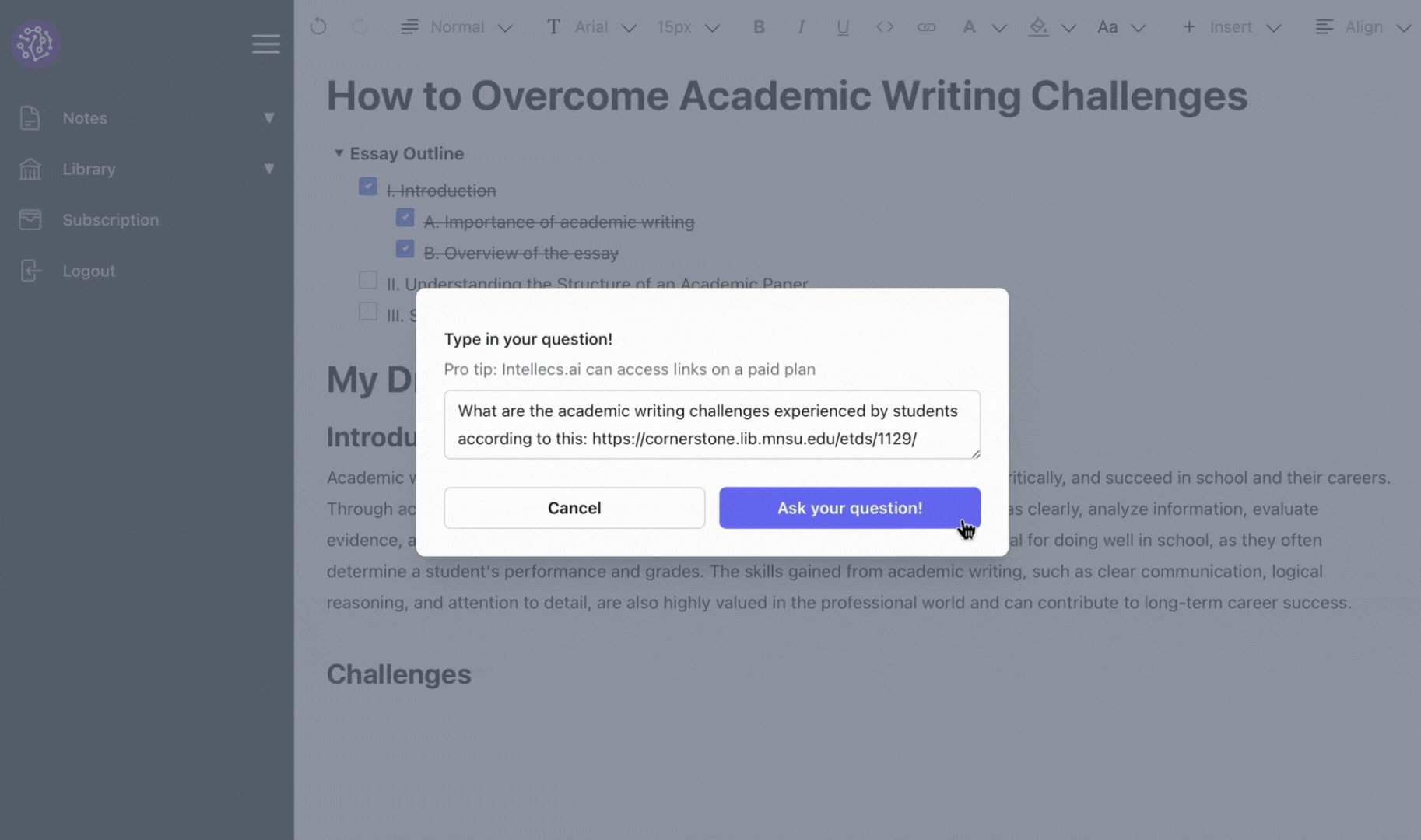How to Use ChatGPT to Write Essays Without Plagiarizing?

Essays have always been a BIG part of a student's academic life. But let's be real - writing academic papers from scratch can be a total slog, especially when writer's block hits hard and the words just won't come.
It's no wonder more and more students have turned to generative AI tools like ChatGPT for help. But hold up - can you really use ChatGPT to write your essays without accidentally plagiarizing? The answer is yes - but only if you use it the right way. In this post, I'll break down exactly how to use ChatGPT to generate academic essays that's 100% original and plagiarism-free.
What is ChatGPT, Really?
First things first, let's clear up what ChatGPT actually does. Released in November 2023, ChatGPT, in a nutshell, is an AI language model that's been trained on a massive amount of data. When you give it a prompt, it predicts what words should come next based on patterns it's learned from all that data. So while ChatGPT can spit out human-like text on pretty much any topic under the sun, it's not coming up with completely original ideas. It's basically puts existing information together in new ways.
What does that mean for you?
Basically, you can't just copy-paste ChatGPT's output word-for-word and slap your name on it and call it your own work. That would still be plagiarism, even if the words came from an AI model. But don't worry - you can absolutely still use ChatGPT to help generate essays without crossing the line into plagiarism. The key is to use it as a starting point for your own original writing, not the final product. Here's how.
Use ChatGPT to Brainstorm and Outline
One of the best ways to use ChatGPT is in the early stages of writing your essay. When you're still trying to figure out your argument and structure, ChatGPT can be a great brainstorming tool to help get your creative juices flowing.

Try giving it prompts like:
"Generate an outline for an essay on [insert your topic], with three main points."
"Suggest a possible thesis statement for an essay about [the topic]."
What are some strong supporting examples or evidence for [insert your argument]?”
ChatGPT will spit out a bunch of relevant ideas and angles for you to explore. It can help you quickly see different facets of the issue and potential ways to structure your argument. Remember though - these are just starting points! Don't take ChatGPT's suggestions as gospel. Instead, use them as jumping-off points for your own original analysis. Dig deeper into the most interesting ideas, and come up with your own insights to build on them.
Write Your Own OG Drafts
When it's time to actually write your essay, resist the temptation to have ChatGPT generate whole paragraphs that you just copy and paste. Instead, use ChatGPT's brainstorming output as a rough guide, but write the actual essay in your own words.
As you write, focus on putting your own spin on the ideas ChatGPT helped you generate. Don't just summarize what the AI said - question it, build on it, and relate it to your own knowledge and experiences. Your essay should showcase your unique perspective and critical thinking skills - not ChatGPT's.
Aaand, if you really want to quote something specific that ChatGPT suggested, put it in quotation marks and cite ChatGPT as the source.
Cite AI-Generated Content
Even if you write your essay yourself, it's important to be transparent about using AI tools like ChatGPT in your writing process. If you included any phrases or ideas that originated from ChatGPT, even if you modified them, cite that in a footnote. You can add something like:
Author Note: ChatGPT, an AI language model developed by OpenAI, was used to generate ideas and outlines for this essay.
or
ChatGPT, an AI language model developed by OpenAI, was used to brainstorm ideas for this essay, accessed June 19, 2023.
Some professors may be totally cool with you using ChatGPT for brainstorming as long as you disclose it. Others might prohibit AI tools entirely. If you're not sure about the policy, ASK! It's always better to be upfront than to risk getting in trouble for academic dishonesty.
Try an AI Writing Assistant Made for Specifically Academic Writing
While ChatGPT is a great general-purpose AI writing tool, there are other options out there specifically designed for students and academic writing. One great example is Intellecs.ai.

Intellecs.ai is an all-in-one writing platform that combines a simple, user-friendly interface with powerful AI features tailored for research papers and essays. It can help you find information from your own sources, generate outlines and ideas, and even suggest academic-style phrasing (and more!).
The Bottom Line
At the end of the day, AI writing tools like ChatGPT and Intellecs.ai are just that - tools. They can be incredibly helpful for brainstorming, outlining, and getting over writer's block. But they're not a magic "easy button" for cranking out essays without doing any original writing yourself.
The key to using AI writing assistants without plagiarizing is to keep them in their proper place as idea-generators and writing aids, not substitutes for your own original work. Use them to jump start your writing process and shake loose new ideas, but always put your own spin on things.
With a little help from AI and a lot of your own original thinking and analysis, you can write truly standout essays that can WOW your professors without running afoul of academic integrity policies. So don't be afraid to use tools - just use them wisely, cite them properly, and always let your own voice shine through. ✨





